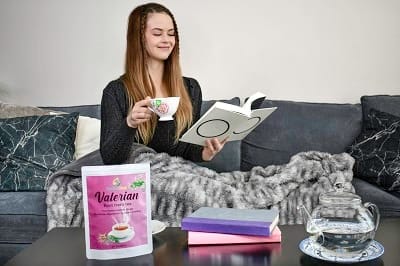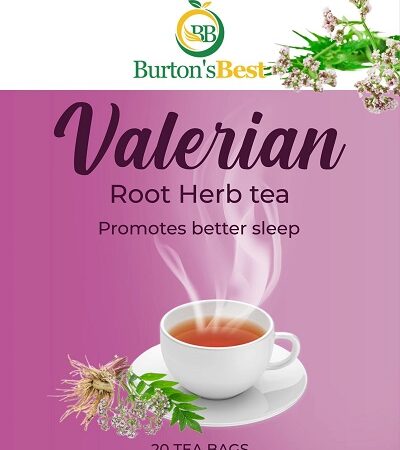When life is moving at full throttle, sometimes the best thing you can do is slow down, take a breath, and pour yourself a hot cup of tea for relaxation. The simple act of steeping herbs in hot water has been part of human tradition for centuries, offering calm not just from the plants themselves but from the ritual of drinking them. Modern science now backs what tradition has always known—herbs contain compounds that ease stress, calm the nervous system, and prepare the body for rest. The right tea can turn bedtime into a nightly reset and stressful afternoons into moments of balance.
One of the best places to start is valerian root. Known as nature’s tranquilizer, valerian has been used for centuries to help calm the mind and promote sleep. It works by interacting with GABA receptors in the brain, the same system responsible for helping you relax after a long day. A cup of valerian tea before bed is a powerful way to ease tension and signal to your body that it’s time to power down. For those who find the earthy taste a little strong, blends that combine valerian with chamomile or lemon balm provide a smoother, more approachable flavor while amplifying its calming effect.

Chamomile deserves its place in nearly every discussion about tea for relaxation. Its gentle floral flavor makes it approachable, while its compounds—like apigenin—bind to receptors in the brain to promote a sense of calm. Chamomile is not just about better sleep; it also reduces feelings of restlessness and supports digestion, which can be a hidden factor in nighttime discomfort. This tea is ideal for anyone who wants to wind down without something too heavy or intense.
Peppermint tea is another soothing option, though its strength lies more in stress relief than sedation. The menthol in peppermint opens the airways, cools the body, and relaxes smooth muscles in the digestive tract. This means peppermint can reduce the discomfort of bloating or an upset stomach, which often contribute to restlessness. While not directly sedative like valerian, peppermint creates the physical conditions that make sleep easier. It’s also a refreshing tea for relaxation during the day, easing tension headaches and helping you reset without caffeine.
Then there’s lavender. Though better known as an essential oil, lavender as a tea is a quiet powerhouse for stress relief. Its aroma alone is enough to lower heart rate and ease anxiety. Combined with chamomile, it makes a fragrant, floral blend that encourages deep breathing and calm before bed. For anyone dealing with tension or racing thoughts, lavender tea is a perfect companion to a nighttime ritual.
Hibiscus might not be the first herb you think of when considering tea for relaxation, but its tart flavor and antioxidant content help support cardiovascular health, which indirectly promotes calm. Stress often spikes blood pressure, and hibiscus tea has been shown to help regulate it. Drinking a cup in the evening not only hydrates you but also helps bring your body into balance, setting the stage for restorative rest.
The real secret is to build a routine. Choosing tea for relaxation isn’t just about which herbs you drink but about creating a ritual that tells your mind and body to slow down. Steeping valerian before bed, sipping chamomile while reading, or enjoying peppermint after dinner transforms everyday moments into signals for peace. These practices align your environment with your physiology, making it easier to leave stress behind and embrace deep rest.
Tea for relaxation is more than a beverage—it’s a natural tool to manage stress and reclaim quality sleep. Whether you lean on valerian for its sedative effect, chamomile for its gentleness, peppermint for its cooling relief, or lavender for its calming aroma, there’s a tea that fits your needs. Make it part of your nightly rhythm, and you’ll find that each cup carries you closer to balance, restoration, and better sleep.






